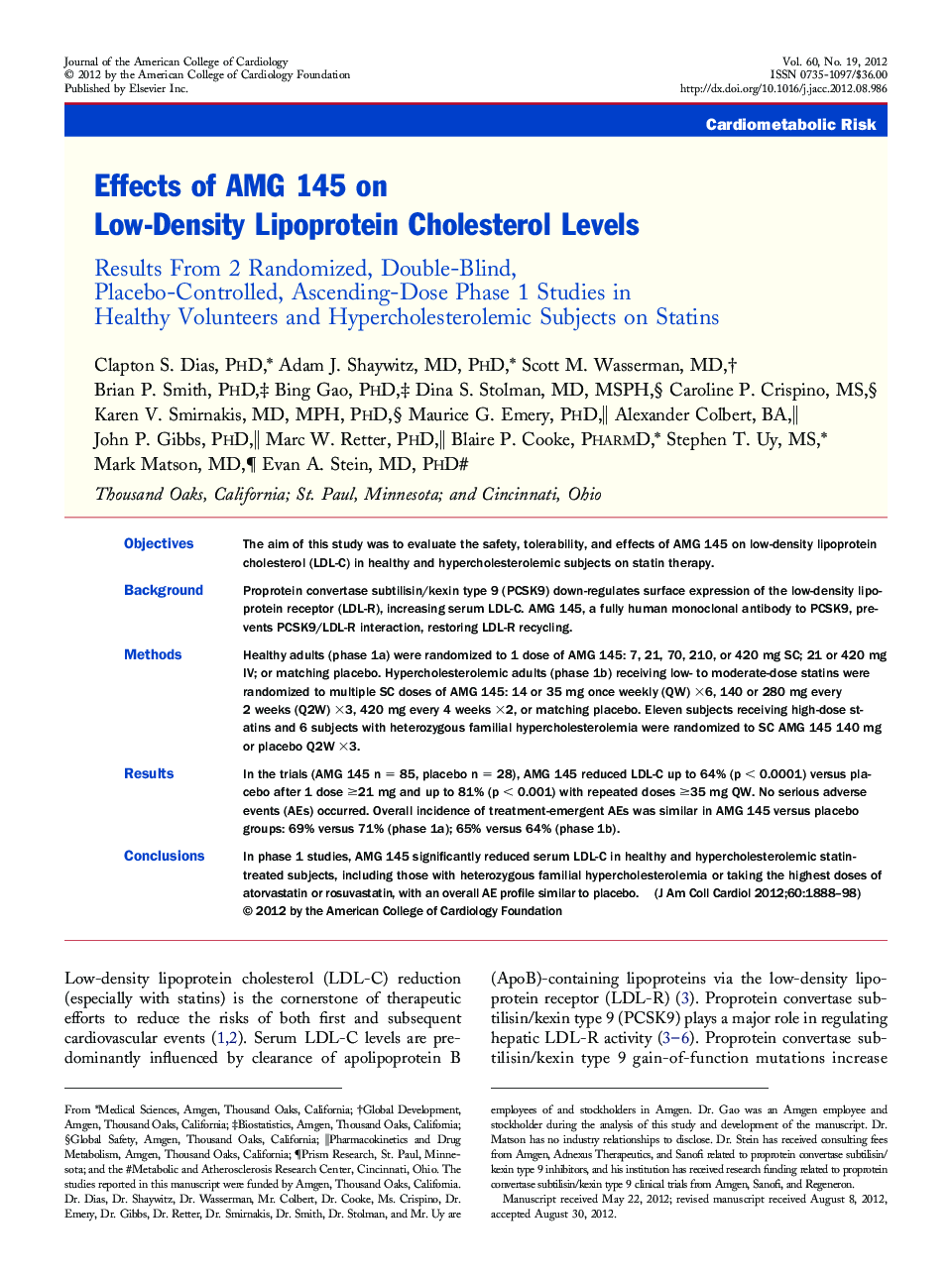| Article ID | Journal | Published Year | Pages | File Type |
|---|---|---|---|---|
| 2946730 | Journal of the American College of Cardiology | 2012 | 11 Pages |
ObjectivesThe aim of this study was to evaluate the safety, tolerability, and effects of AMG 145 on low-density lipoprotein cholesterol (LDL-C) in healthy and hypercholesterolemic subjects on statin therapy.BackgroundProprotein convertase subtilisin/kexin type 9 (PCSK9) down-regulates surface expression of the low-density lipoprotein receptor (LDL-R), increasing serum LDL-C. AMG 145, a fully human monoclonal antibody to PCSK9, prevents PCSK9/LDL-R interaction, restoring LDL-R recycling.MethodsHealthy adults (phase 1a) were randomized to 1 dose of AMG 145: 7, 21, 70, 210, or 420 mg SC; 21 or 420 mg IV; or matching placebo. Hypercholesterolemic adults (phase 1b) receiving low- to moderate-dose statins were randomized to multiple SC doses of AMG 145: 14 or 35 mg once weekly (QW) ×6, 140 or 280 mg every 2 weeks (Q2W) ×3, 420 mg every 4 weeks ×2, or matching placebo. Eleven subjects receiving high-dose statins and 6 subjects with heterozygous familial hypercholesterolemia were randomized to SC AMG 145 140 mg or placebo Q2W ×3.ResultsIn the trials (AMG 145 n = 85, placebo n = 28), AMG 145 reduced LDL-C up to 64% (p < 0.0001) versus placebo after 1 dose ≥21 mg and up to 81% (p < 0.001) with repeated doses ≥35 mg QW. No serious adverse events (AEs) occurred. Overall incidence of treatment-emergent AEs was similar in AMG 145 versus placebo groups: 69% versus 71% (phase 1a); 65% versus 64% (phase 1b).ConclusionsIn phase 1 studies, AMG 145 significantly reduced serum LDL-C in healthy and hypercholesterolemic statin-treated subjects, including those with heterozygous familial hypercholesterolemia or taking the highest doses of atorvastatin or rosuvastatin, with an overall AE profile similar to placebo.
